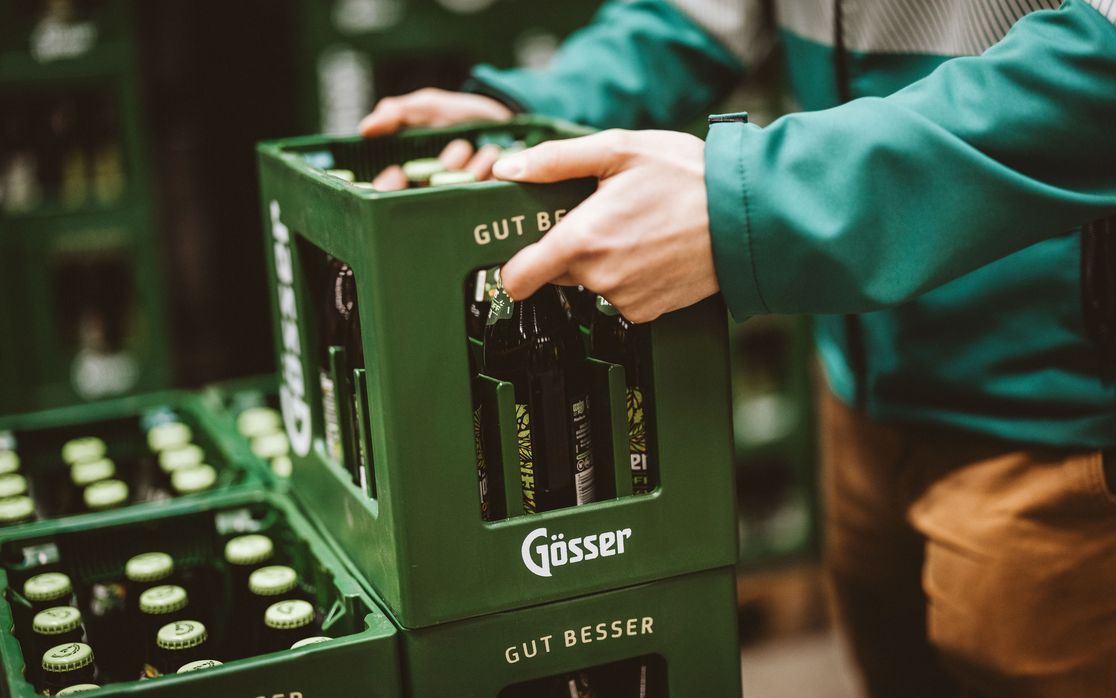Lightweight and durable: more sustainability thanks to Echovai
Glass is one of the most sustainable and environmentally friendly packaging materials. It is made from natural resources, does not release any harmful substances and is 100 percent recyclable. To date, the only challenges with glass bottles have been their weight and stability. With Echovai, Vetropack is the world's first manufacturer of glass packaging to develop a solution that significantly improves these aspects – and, at the same time, further increases the sustainability of glass packaging.
The thermally hardened lightweight glass bottles are particularly robust and are therefore a material-saving reusable solution. "Echovai bottles are superior, both economically and ecologically, and could actually revolutionise the market for reusable glass containers," Daniel Egger, Head of Innovation at Vetropack, emphasises.
Echovai glass bottles are around 30 percent lighter
This aspect is especially impactful with reusable bottles, as they have to be transported back to the bottling plants for refilling. A look at the Austrian Echovai pilot user Mohrenbrauerei shows the enormously positive effect that the thermally hardened lightweight bottles have on logistics: the 0.33 litre reusable bottles made from Echovai glass saved around 30 percent in weight compared to standard reusable bottles.
As an additional advantage, Echovai bottles break much less frequently than conventional bottles and show significantly less scuffing on the contact surfaces. After three years of use and up to twelve refill loops, a large proportion of the Echovai bottles used by the Mohrenbrauerei can still be described as being in mint condition. “We therefore assume that Echovai bottles will achieve a significantly higher number of refill loops – which makes them an even more ecologically compelling solution compared to standard bottles," says Daniel Egger.
Environmentally friendly alternative even for products in disposable containers
Echovai bottles are not only an alternative for beverage producers who already sell their products in returnable containers. Egger and his colleagues also see great potential for the new Vetropack solution in the segment of disposable glass bottles, since weight often plays a decisive role in this here. In this way, Echovai could promote the switch to reusable containers.
"In the long term, we are striving for a more user-friendly return and refill system with 100 percent reuse of the bottles," explains Daniel Egger. "We are also already working on a solution for optimised traceability of our Echovai bottles. In the future, a specific data matrix code on each bottle will make it possible to link any data with the product unit. This will make it possible to link areas of the value chain that are currently considered separately and to trace them back along the entire supply chain – from production to bottling to the end customer. Echovai thus also marks the dawn of a new era of digital interlinking."
